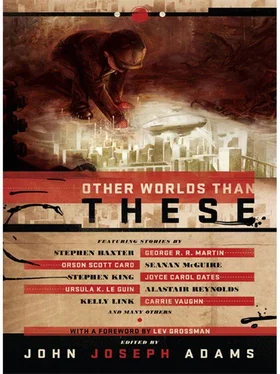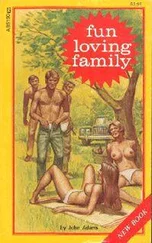We had been ordered to set up a traffic control point on the West Side, ten blocks south of the green zone. Two APCs backed by a Martindale light tank, razor-wire coiled across the street, the men waving vehicles forward one by one, doing stop and checks. The traffic was bunched up and jumpy, simmering in hundred-degree heat so humid you could have wrung water out of the air. And we were all jumpy, too. At any moment, someone could pop a trunk and find weapons or a primed car bomb, or some screwed-up munchkin could decide to take a shot at us just for the hell of it. So when a taxi lurched forward after it was directed to an inspection point, accelerating crazily, scattering men, Bobby Sturges, behind the .50 caliber machine gun on top of one of the APCs, made a split-second decision and put two hundred rounds into the taxi in less than a minute. Punching holes in the hood, exploding the tyres, shattering the windshield, shredding the driver and his two passengers, a man and his seventy-year-old mother. Sudden silence as the taxi rolled to a stop, engine dead, blood leaking from its door sills, blood and human meat spattered all over the interior.
That evening, Tommy McAfee said, “If these fucking munchkins learned to drive, this shit wouldn’t happen.”
Munchkins—that’s what we called the locals. New York City—the American Bund sheaf’s version of New York City—was Oz. The green zone in Oz, built up around a palace that before the revolution had been owned by one of the Dear Leader’s sons, was the Emerald City.
Like many of the men, Tommy McAfee had trouble accepting that the people on this side of the mirror were as real as the people back home, couldn’t believe that Americans could have brought themselves so low. He treated them with rough contempt, made endless jokes about them. He had a quick, sharp wit, knew how to time a punch line and cap someone else’s joke with a zinger of his own, was gaining a solid reputation as the platoon’s joker. So when he made his quip, he was surprised and upset when Ernie Wright told him to can it, and the rest of the men either made murmurs of agreement or looked away.
They were all lounging around by the side of the entrance that curved down to the underground garage where the Dear Leader’s eldest son had once stored his limousines, sports cars and motorcycles, where we now parked our APCs and Jeeps. We ate and slept in what had been servants’ quarters nearby, and had set up a barbeque pit outside. Folding chairs. A basketball hoop. A table-tennis set liberated from somewhere in the palace. Tommy McAfee was sitting on a case of oil cans, a rangy kid with rusty hair cropped short, a tattoo of a boxing leprechaun on his right bicep, looking at Ernie Wright and saying, “Jesus. You’d think I was the one shot that fucking taxi to death.”
Ernie Wright was the biggest man in the platoon, but he could move quickly. He stepped up to Tommy McAfee and grabbed the front of his fatigues and pulled him to his feet in a single fluid motion, and asked him, their faces inches apart, “Any more smart remarks about what went down?”
“I can’t think of any.”
Wright set McAfee down and patted him on the shoulder, but that wasn’t the end of it. Later on that evening they got into a fistfight. It was supposedly over who should have the last steak, but it was really about McAfee trying to regain some face after Wright had shamed him. McAfee could box, but Wright was stronger and heavier, and after some sparring he knocked McAfee on his ass with a solid punch. McAfee got up and came back at Wright and was knocked down again, and this time he stayed down. Sprawled flat on his back on floodlit concrete under the basketball hoop, breathing hard, his nose and mouth bloody, one eye swelling shut. After a while he got up and went to the ice-chest and washed his face with a handful of ice chips.
I didn’t think much of it at the time. We’d all been on edge after the shooting, and the fistfight seemed to have dissipated much of the tension. And besides, I was more concerned about Bobby Sturges. He was a gentle kid, barely eighteen, sick to his soul over what he’d done. When I’d told him that he wouldn’t get any blame when I wrote up the incident, that I accepted full responsibility because it had happened under my command, he’d given me a haunted look and said, “Doesn’t make it right, Lieutenant. They’re Americans, like us. Americans shouldn’t be killing Americans.”
“I agree. But some of them are trying to kill us, which is why you did the right thing.”
“Maybe it was the right thing to do,” Bobby Sturges said, “but that doesn’t make it right.”
I put in a request to pull him off the line for a few days R&R, but it was kicked back immediately. There was sand in the gears of the mission. We couldn’t spare any men. I took him off the .50 cal, but he had to ride out with us on patrol the next day, and the day after that.
We manned checkpoints. We escorted convoys of supplies to hospitals and aid stations. We escorted a convoy of construction material to a power station that had been badly damaged during the war—jackhammers were pounding all over the city, cranes were swinging to and fro, and scaffolding was springing up like kudzu as the munchkins patched and repaired and rebuilt, as if tearing down one movie set and erecting another in its place. I noticed that Ernie Wright did his best to keep behind Tommy McAfee during foot patrols, and guessed what he was thinking. Tommy McAfee might want to even things out after his beating, we were all carrying guns, and it wasn’t unknown for a soldier with a beef to put a round or two into their rival’s back in the middle of a firefight. But Tommy McAfee seemed to have forgotten the incident, and although the deadenders were staging hit-and-run raids in Texas and parts of the Midwest, and Washington, D.C. was paralysed by a spate of car bombings, New York was pretty quiet. It was August, hot and sunny. I remember one day we were parked up near a playground, and Dave Brahma and Leroy Moss started handing out candy bars and cans of soft drink to the kids. Two men in flak jackets and helmets, M-16s slung over their shoulders, up to their waists in a crowd of happy children. Another time, Todd Cooper was checking IDs at a control point and a man started shaking his hand and wouldn’t let go. This old man in a dusty suit and battered fedora, pumping Todd Cooper’s hand and thanking him for being there, tears rolling down his cheeks.
Then a supply convoy running the expressway from Brookhaven into New York City was hit by a massive improvised explosive device buried at the side of the highway. Five died instantly, six were badly wounded. That night, my platoon took part in a raid on an apartment building in Brooklyn. According to an informer, the deadenders who had planted the IED were storing weapons and explosives there.
It kicked off at two in the morning. A psy-ops vehicle blasted out a message telling everyone to leave their doors open and wait with their hands on their heads for questioning. Two Cherokee helicopters beat above the building’s flat roof, lighting up the front with searchlights. A squad of explosives specialists hit the basement first, and then everyone else went in.
My platoon had been assigned the top two floors. I was determined to do things by the book. I told the men to knock first and break down doors only if they had to, to keep their fingers off their triggers and treat everyone with respect. Even so, it was a pretty brutal business. We’d storm in, grab the man of the house and throw him down, pacify the rest of the family, and interrogate the man in front of them, ask him if he owned a weapon or had any insurgent propaganda, if he was involved in insurgent activity in any way. Then we’d rip up the place, pulling out drawers and tossing the contents, ripping through closets, looking for anything that could be used as a weapon. The people were mostly passive, but we’d been told to expect trouble and we had no idea what we might find or if the situation might suddenly turn ugly. Despite my orders, there was quite a bit of roughhousing and horseplay to relieve the tension, shouts and screams, the smash of glass and crockery. A frat house party with half the participants armed to the teeth, and the possibility of sudden death hanging in the air.
Читать дальше











